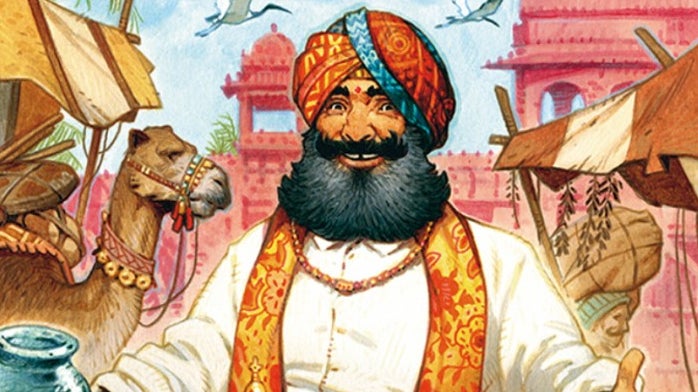Dicebreaker Recommends is a series of monthly board game, RPG and other tabletop recommendations from our friends at our sibling site, Dicebreaker. This month, it’s Jaipur – one of the team’s picks for the best two-player board games around.
March is the month for strengthening our relationships, whether they’re with partners or friends. It’s nice to get a little intimate, and playing a two-player board game is the perfect way to initiate this setup. The best two-player games are usually those that are designed specifically for just two people to play, capitalising on the head-to-head nature of the situation and inciting a healthy amount of competition. Jaipur takes this concept to its most extreme, pitting its players against one another in a bitter battle that will undoubtedly leave someone feeling hard done by.
Jaipur is a card game whose premise is very simple: two players attempt to earn the most points possible by collecting and selling cards. This simplicity paves the way for some serious back-and-forth gameplay, with each round of Jaipur being filled with drama despite its fast pacing. As traders for the maharaja’s court, the players are desperately vying for attention, fighting for the best deals on the most valuable treasures like a Target store on Black Friday. Don’t let Jaipur’s accessible gameplay and colourful theming fool you – it’s a game about ruining your opponent’s plans and rubbing their face in it.
Every turn, players will have the option to choose between taking a single card, taking all the available camel cards or exchanging several cards from their hand for the same amount of cards in the market. Deciding which cards to take will entirely depend on what’s currently in your hand. Whilst some treasure cards are worth a measly two or three points – such as silks and cloth – others are worth a much greater number of points. Whilst the camel cards’ value depends on whether you think you can collect more than your opponent, they still only pay out five points in total. However, the more valuable cards also happen to be rarer, with many markets often being filled with brown cards and only one or two cards of actual value.
